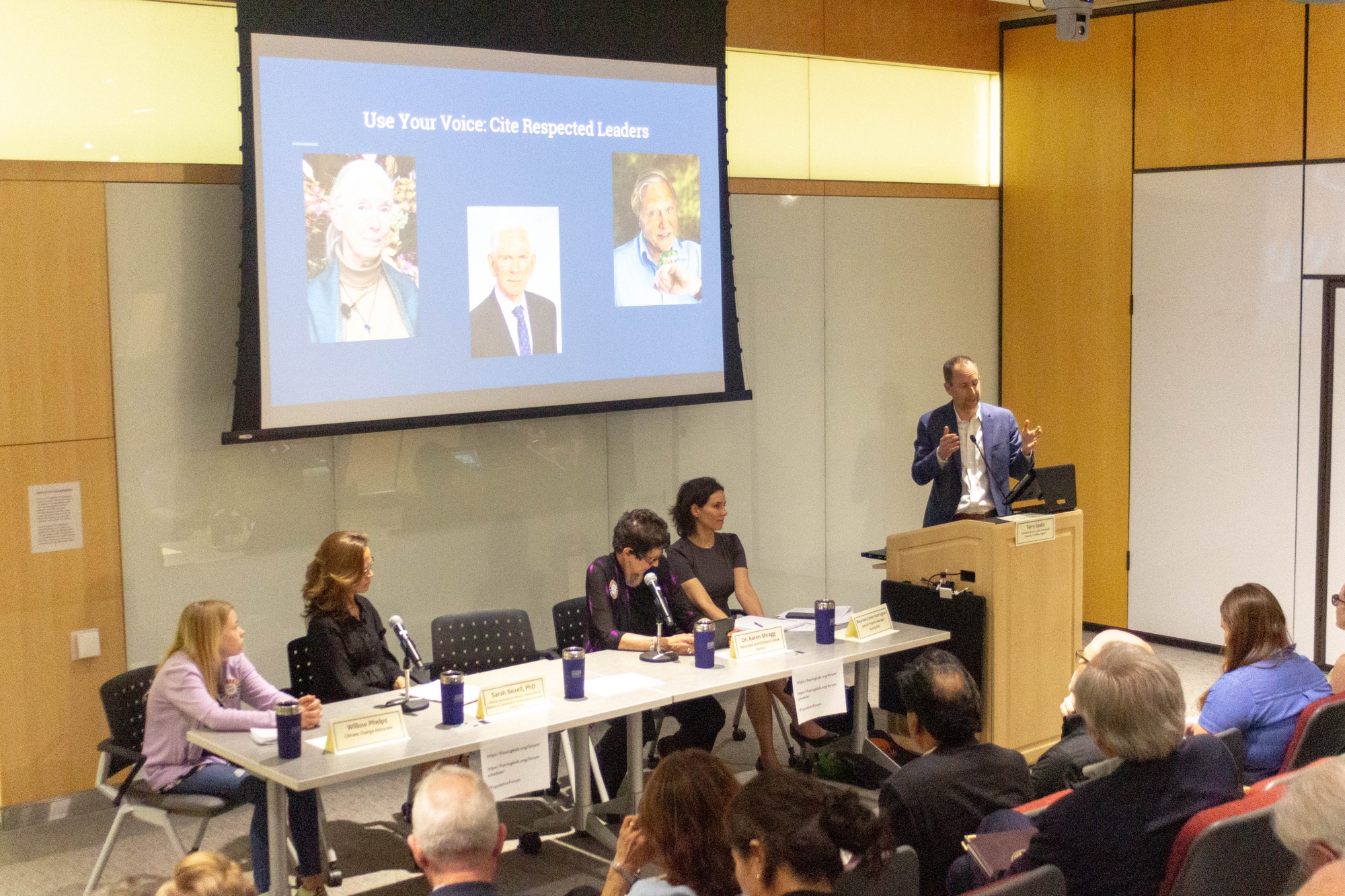
From Right to Left: Terry Spahr (Executive Director at Earth Overshoot); Maureen Cohen Harrington (Special Projects Manager at Having Kids); Dr. Karen Shragg (Naturalist and Children's Book Author); Dr. Sarah Bexell (Clinical Associate Professor at the University of Denver); Willow Phelps (Climate Activist).
In the United States, having multiple children is the foundation of an idealistic American lifestyle. While three kids playing in the back of a Suburban may be the most poignant depiction of the American dream, scientists and climate advocates suggest that our earth cannot support the upward trend of human population growth.
On April 9th, Sustainable GW hosted the forum Tackling the Population Taboo: Creating a Sustainable Future for Children, aimed at reorienting the conversation on children, population growth, and family planning. From stigma or shame to empowerment, freedom, and bodily autonomy. Participants learned about how current population trends place extreme ecological demands on our planet, and that the Earth is not equipped to support a population that is estimated to grow to eight billion in the coming years.
The conference was organized by Having Kids, an organization that believes that all children deserve a fair and sustainable world. The organization hopes that by having more conversations about how population growth adversely affects the planet, individuals will see the benefits of investing more per child and developing more sustainable family planning practices.
Speakers at the population forum included activists, academics, researchers, and practitioners studying the impacts of population growth on the environment and how family planning can be the answer to the issues facing our planet. Speakers concluded that behavior change and reframing the conversation about population growth from control to choice was necessary in order for messaging to be compelling, and to dispel stigma about compulsory family planning. Participants also agreed that normalizing one child families or opting not to have kids is similarly important.
Effective family planning is the most comprehensive way to address the environmental impact of a growing population and in the best interest of kids, animals, and the environment. Family planning means access to birth control for both men and women, and access to general healthcare. Family planning isn’t just distribution of condoms or access to the pill, but education so women can pursue careers outside of the home or healthcare so fear of children dying isn’t a factor equated when couples choose to have another child.
The forum encouraged a nuanced approach to what can be a sensitive topic, understanding the education, cultural or financial barriers can inhibit individuals from making empowered reproductive choices, and that objective scientific messaging should only be disseminated from a compassionate or non judgemental perspective.
Article by Ana Little-sana (CCAS ‘21)
.png)
